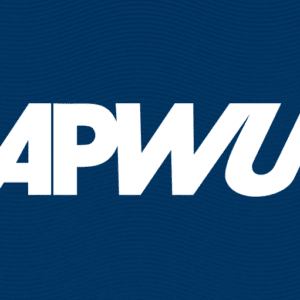July 25, 2019
Attacks on the Universal Service Obligation – A Backdoor to Privatization?
(This article first appeared in the July/August 2019 issue of the American Postal Worker magazine)
The mission statement of A Grand Alliance points to two fundamental characteristics of the United States Postal Service that make it our national treasure.
First, is the fact that USPS is owned by the people and that its core function is to fulfill a public mission. Second, and especially crucial at this moment, is that the Postal Service delivers universal, quality services to everyone across the country – no matter who they are, where they live or their wealth.
Ever since the 2006 Postal Accountability and Enhancement Act manufactured a financial crisis in the Postal Service with its unprecedented mandate to prefund retiree health benefits, there has been a relentless assault on the universal service that the Postal Service provides.
First, it was management’s own proposal to do away with Saturday delivery. Then came plant consolidations, post office closings and the infamous partnerships with retailers like Staples.
Fortunately for those who rely on robust, universal postal services, postal workers and allies in communities across the country took action and stopped many of those proposals. Nonetheless, those fights made clear that a struggle over the very nature of universal service will be a central battleground in debates about the future of the Postal Service. The Office of Management and Budget (OMB) report on restructuring government and the White House’s postal Task Force only underscored that point. The OMB report pointed to the existing universal service obligation (USO) – alongside postal workers’ compensation – as a source of “extremely high cost” that USPS “can no longer support.”
The Task Force report took an even harder view on the issue. Citing recommendations from the Government Accountability Office (GAO) and analysis from the Postal Regulatory Commission (PRC), the Task Force introduced a truly dangerous approach in considering the USO – dividing the mail into “essential” and “not essential” products and services.
The Task Force’s call to specifically define the USO may appear at first to be a commonsense responsibility for Congress, the PRC and the Postal Service. However, the stakes could not be higher. Except for the suggestion that the geographic scope of the USO continue to be broadly defined, the clear implication of the Task Force report is that the USO should be smaller, narrower and less costly for the Postal Service to meet.
What would that mean in practical terms? The mail would arrive slower, thousands of post offices could close, delivery days would disappear, and with all that, so would the jobs and livelihoods of thousands of postal workers of every craft.
And for the booming e-commerce segments, the Task Force’s USO recommendations are even more dangerous. They would allow the PRC to rewrite pricing rules that could dramatically increase the cost of shipping with the Postal Service. That could push the USPS out of the e-commerce business that has been so crucial to its survival since 2006. The two big private shippers – UPS and FedEx – would be left free to jack up their rates, maximize profits, and hurt postal users who rely on e-commerce for everyday needs.
Postal workers and their allies in A Grand Alliance and beyond should remain vigilant in the months ahead, as postal reform continues to be debated in the halls of Congress.
In recent hearings on the Task Force report in both the Senate and the House of Representatives, members of both major parties seemed to embrace the notion of redefining the universal service obligation.
With a majority of representatives in both chambers opposing explicit postal privatization (see page 18), members of A Grand Alliance and other defenders of the public Postal Service must ensure Congress avoids making catastrophic changes to the people’s Post Office with dangerous reforms, like changes to the USO.



